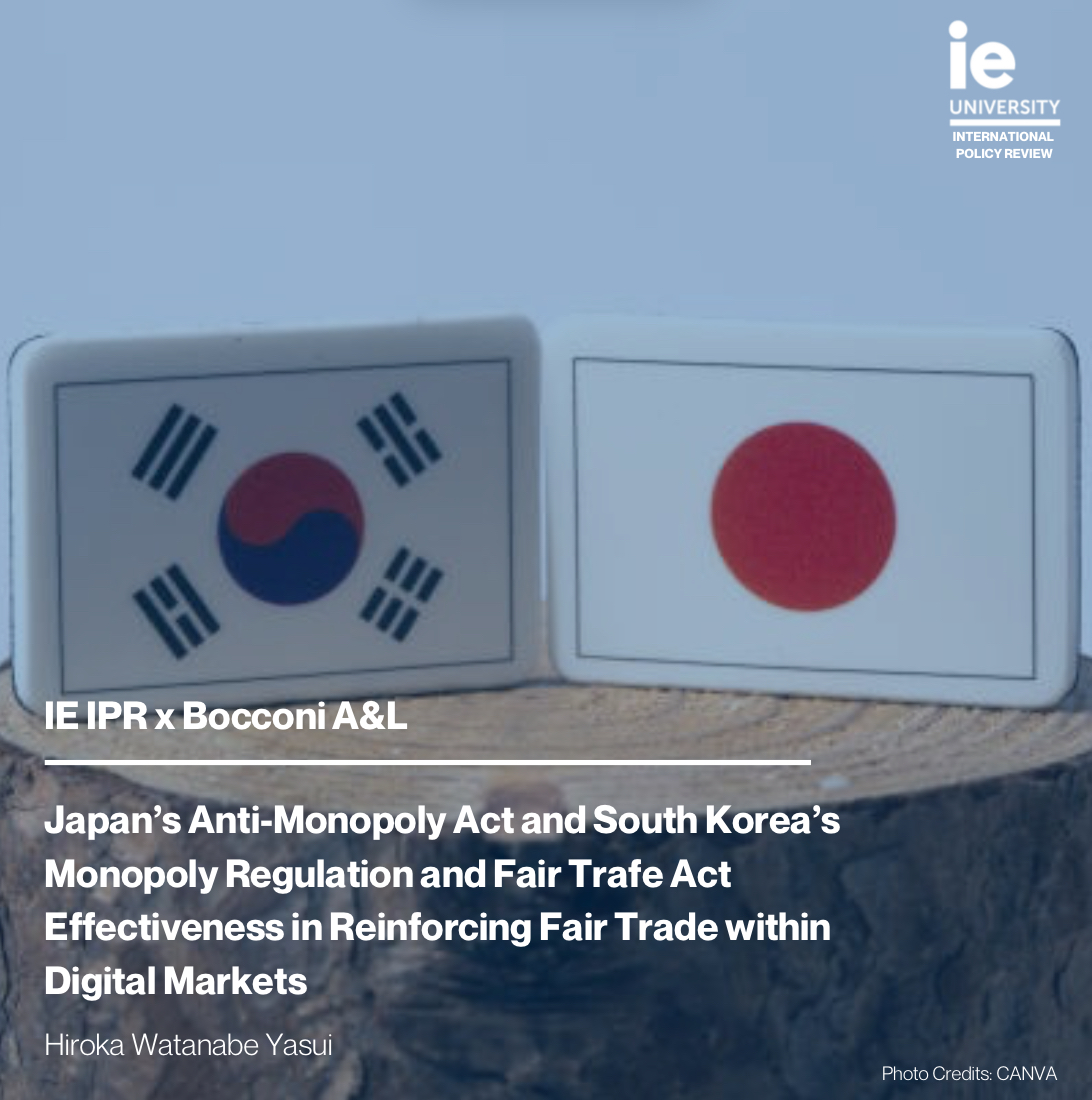
01 Jul Japan’s Anti-Monopoly Act and South Korea’s Monopoly Regulation and Fair Trade Act Effectiveness in reinforcing fair trade within digital markets
Hiroka Watanabe Yasui
IE University, Segovia, Spain
Bachelor of Laws and Bachelor in International Relations
Email: hwatanabe.ieu2024@student.ie.edu
Abstract
As digital markets become more predominant in the world economy, policymakers have become increasingly interested in being able to target and tackle challenges that become obstacles to the promotion of free and fair trade. While the European Union and the US have already adopted new regulations, Asian countries, such as Japan and South Korea are just beginning to. Therefore, their existing competitive laws have the role to identify, prevent anti-competitive behavior and reinforce fairness in trade in the area of digital economy. This paper aims to examine to what extent current laws in Japan and South Korea differ in effectively reinforcing fair trade in the context of digital markets by establishing the scope of their specific regulations, the Anti-Monopoly Act and the Monopoly Regulation and Fair Trade Act, and by analyzing how they are enforced when fair competition is challenged: either limited and voluntary or austere and strict.
READ THE FULL ARTICLE HERE (Page 71-82)
Keywords: fair trade, digital markets, competition law, Japan, South Korea, algorithms, search engines

Sorry, the comment form is closed at this time.